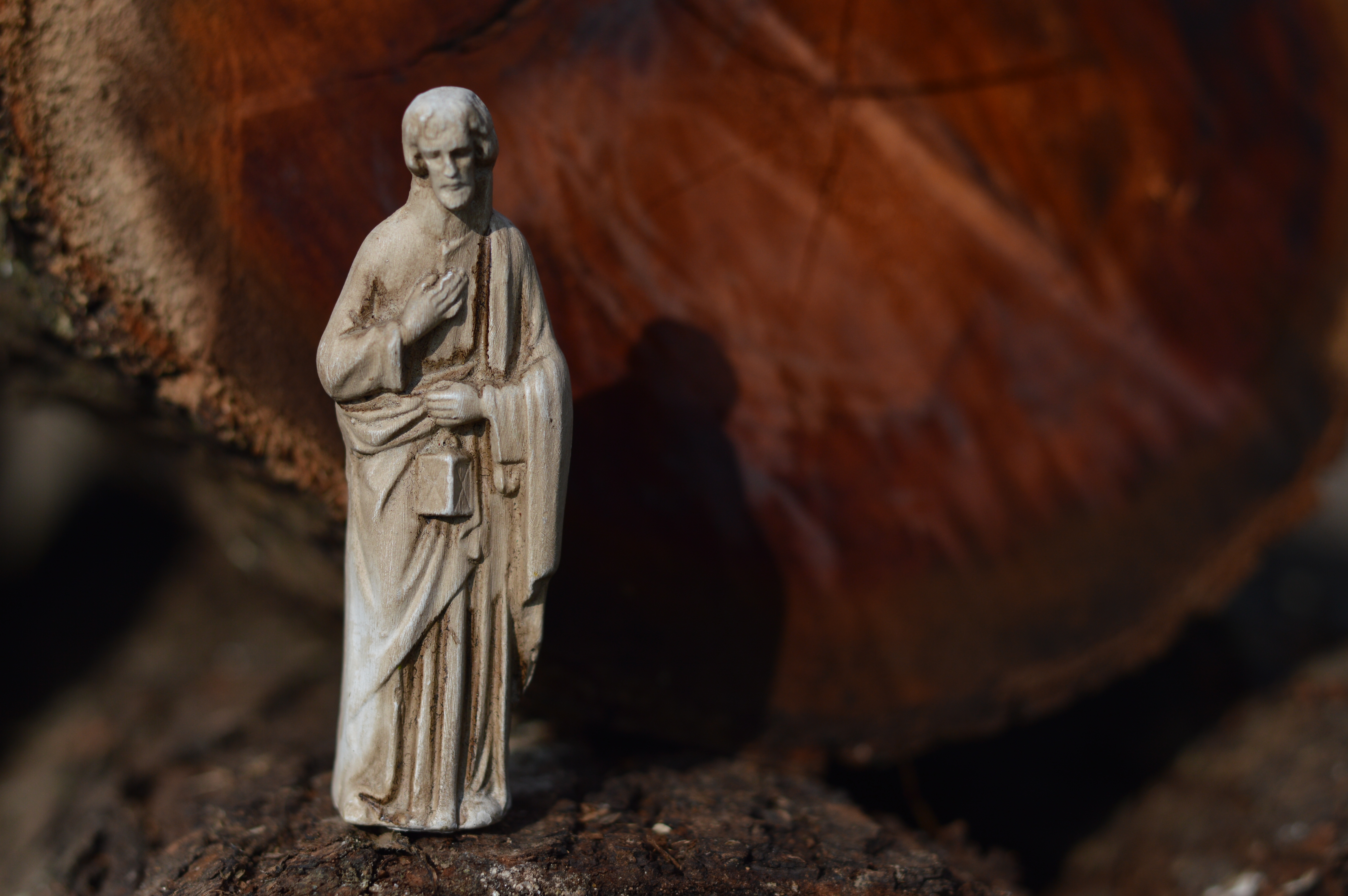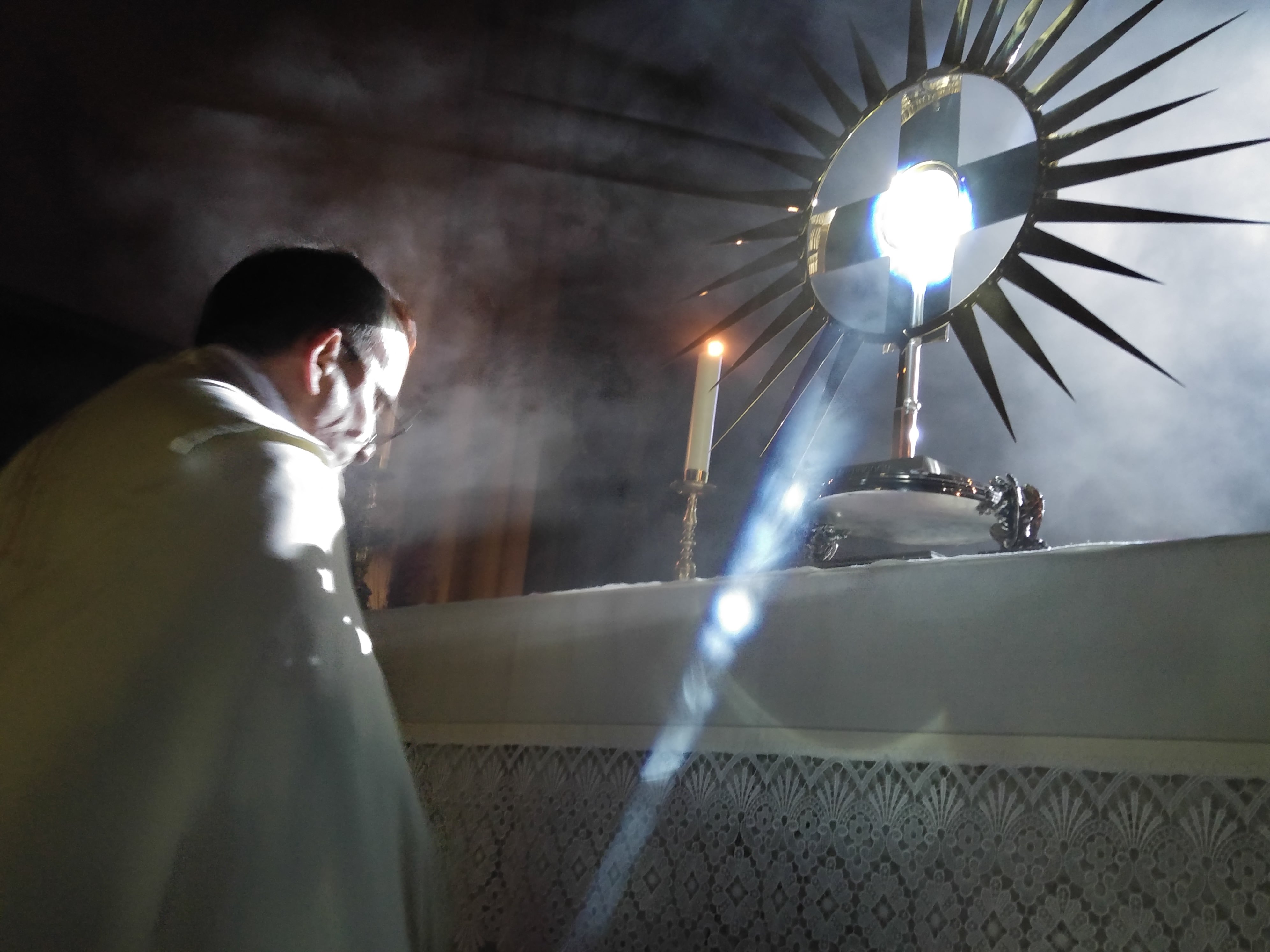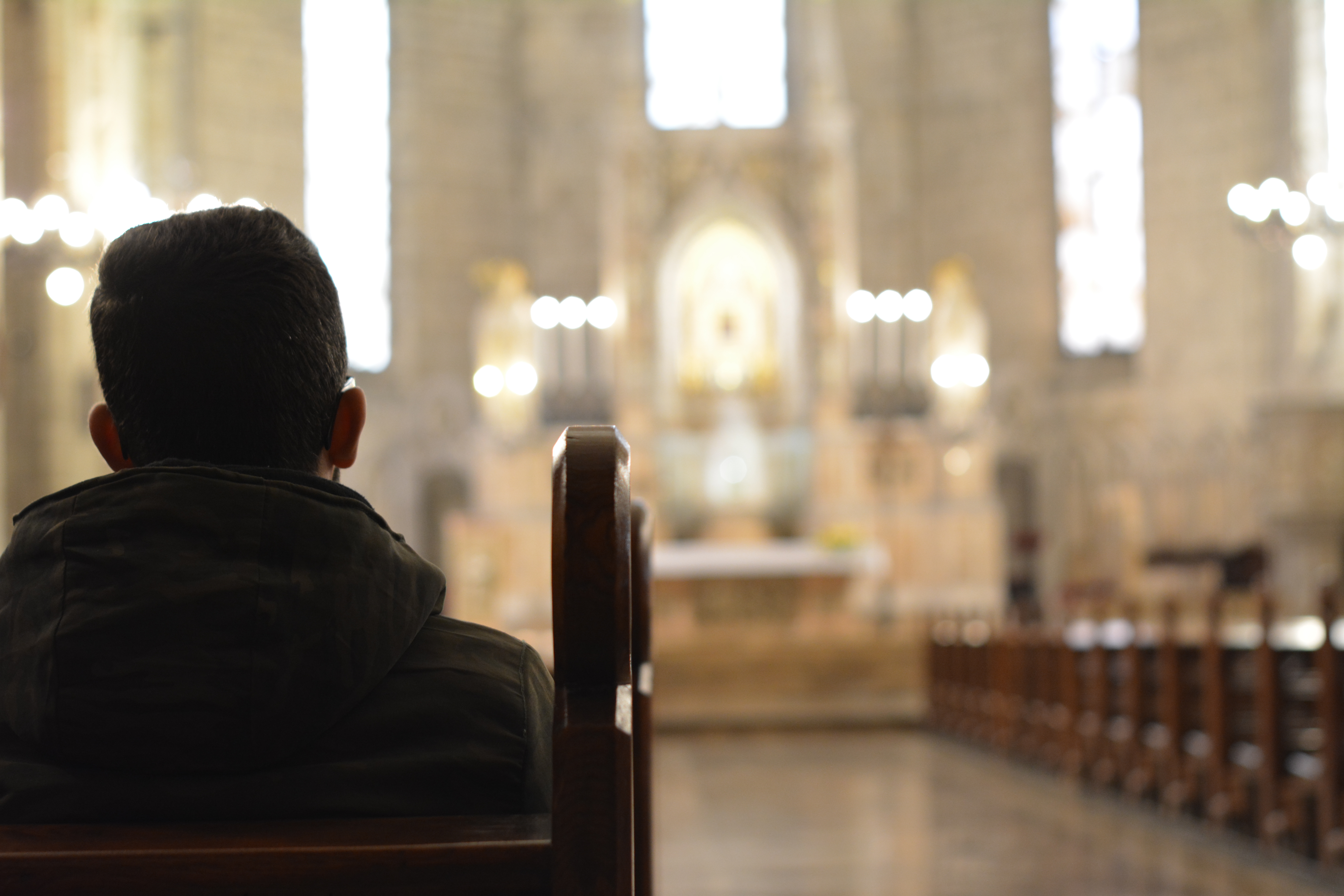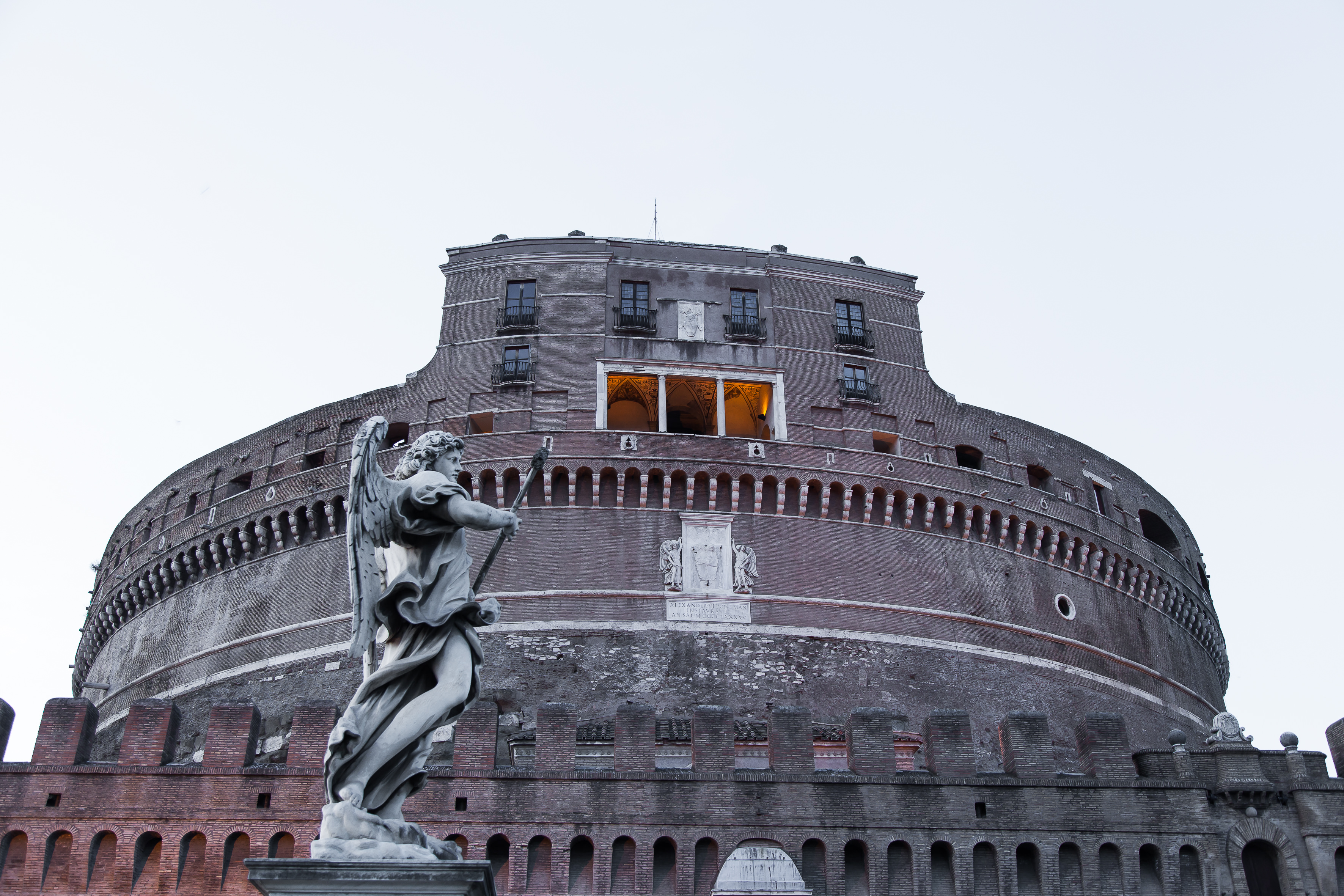Our readings today present us with two scenarios of radical trust in God. In the first, Abraham directed his servant to find a wife for Isaac from among his own people, even though they were living in a foreign land and that might not be desirable to a woman native to Abraham’s land. While his servant asked what to do if God’s plans do not come to pass, Abraham was confident that God would carry out His plan: “The Lord, the God of heaven, who took me from my father’s house and the land of my kin, and who confirmed by oath the promise he then made to me . . . he will send his messenger before you, and will obtain a wife for my son there” (Gen. 24:7). Abraham had faith in God, because he knew Him to be one who never lies, and who guarantees His word despite seemingly impossible circumstances.
In the second scenario, Matthew was simply working at his customs post when Jesus called him: “Follow me.” We do not know if Matthew had already heard about Jesus, but surely he had not had much experience with Him before his calling. Nevertheless, he immediately left his post (literally) and followed Jesus. Like Abraham, Matthew knew that God does not call in vain, and He gives grace to achieve His will to those who follow Him in faith.
As a result of Abraham’s faith, his servant coordinated the marriage of Isaac and Rebekah, and we hear that “in his love for her, Isaac found solace after the death of his mother Sarah” (Gen. 24:67). As a result of Matthew’s faith, he became an apostle of Christ, carrying the Gospel message to foreign lands and ultimately attaining heaven. For each of these men, following God unreservedly, with a faith that trusts in promises given despite unlikely or unexplained circumstances, leads to true fulfillment. Both find purpose and become great men journeying toward their heavenly homeland.
God’s assistance of Abraham, Isaac, and Matthew should show us that there is no reason not to follow God’s will. Abraham had many occasions to respond to God with skepticism, and Matthew did not need to completely abandon his former life to follow a man he barely knew. But both understood that when God calls, even if He does not give us all of the information, it is the best thing to follow Him.
This can be daunting, but God is the one who created us. God gave us all of our natural powers and desires, and He alone knows how to fulfill us. Sometimes, in the noise of the world and faced with the temptations of Satan, we can forget that following the Lord and His Church will not only make us morally upright, but it will also make us truly happy. The Christian life gives us peace and joy, not only the comfort of a fulfilled obligation. In moments of trial, we can trust in God’s providence and goodness, knowing that He makes everything work together for good for those who love Him.
Nuestras lecturas de hoy nos presentan dos escenarios de confianza radical en Dios. En el primero, Abraham ordenó a su siervo que buscara una esposa para Isaac de entre su propio pueblo, aunque vivían en el extranjero y eso podría no ser deseable para una mujer nativa de la tierra de Abraham. Mientras su siervo preguntaba qué hacer si los planes de Dios no se cumplen, Abraham confiaba en que Dios llevaría a cabo Su plan: “El Señor, Dios de los cielos, que me tomó de la casa de mi padre y de la tierra de mi familia, y quien confirmó con juramento la promesa que entonces me hizo. . . él enviará su mensajero delante de ti, y allí conseguirá mujer para mi hijo” (Gén 24,7). Abraham tenía fe en Dios, porque sabía que nunca miente y que garantiza Su palabra a pesar de las circunstancias aparentemente imposibles.
En el segundo escenario, Mateo simplemente estaba trabajando en su puesto de aduanas cuando Jesús lo llamó: “Sígueme”. No sabemos si Mateo ya había oído hablar de Jesús, pero seguramente no había tenido mucha experiencia con Él antes de su llamado. Sin embargo, inmediatamente dejó su puesto (literalmente) y siguió a Jesús. Al igual que Abraham, Mateo sabía que Dios no llama en vano, y que da la gracia para lograr Su voluntad a aquellos que lo siguen en la fe.
Como resultado de la fe de Abraham, su siervo coordinó el matrimonio de Isaac y Rebeca, y escuchamos que “en su amor por ella, Isaac halló consuelo después de la muerte de su madre Sara” (Gén 24,67). Como resultado de la fe de Mateo, se convirtió en apóstol de Cristo, llevando el mensaje del Evangelio al extranjero y finalmente alcanzando el cielo. Para cada uno de estos hombres, seguir a Dios sin reservas, con una fe que confía en las promesas dadas a pesar de las circunstancias improbables o inexplicables, conduce a la verdadera realización. Ambos encuentran un propósito y se convierten en grandes hombres que caminan hacia su patria celestial.
La asistencia de Dios a Abraham, Isaac y Mateo debería mostrarnos que no hay razón para no seguir la voluntad de Dios. Abraham tuvo muchas ocasiones de responder a Dios con escepticismo, y Mateo no tuvo que abandonar por completo su vida anterior para seguir a un hombre al que apenas conocía. Pero ambos entendieron que cuando Dios llama, aunque no nos dé toda la información, lo mejor es seguirlo.
Esto puede ser desalentador, pero Dios es quien nos creó. Dios nos dio todos nuestros poderes y deseos naturales, y solo Él sabe cómo satisfacernos. A veces, en medio del ruido del mundo y ante las tentaciones de Satanás, podemos olvidar que seguir al Señor y a su Iglesia no sólo nos hará moralmente rectos, sino que también nos hará verdaderamente felices. La vida cristiana nos da paz y alegría, no sólo el consuelo de una obligación cumplida. En momentos de prueba, podemos confiar en la providencia y la bondad de Dios, sabiendo que Él hace que todo coopere para el bien de quienes lo aman.
 David Dashiell is a freelance author and editor in Nashville, Tennessee. He has a master’s degree in theology from Franciscan University, and is the editor of the anthology Ever Ancient, Ever New: Why Younger Generations Are Embracing Traditional Catholicism.
David Dashiell is a freelance author and editor in Nashville, Tennessee. He has a master’s degree in theology from Franciscan University, and is the editor of the anthology Ever Ancient, Ever New: Why Younger Generations Are Embracing Traditional Catholicism.
Feature Image Credit: Lilia Macías, cathopic.com/photo/4084-contemplando-el-horizonte












